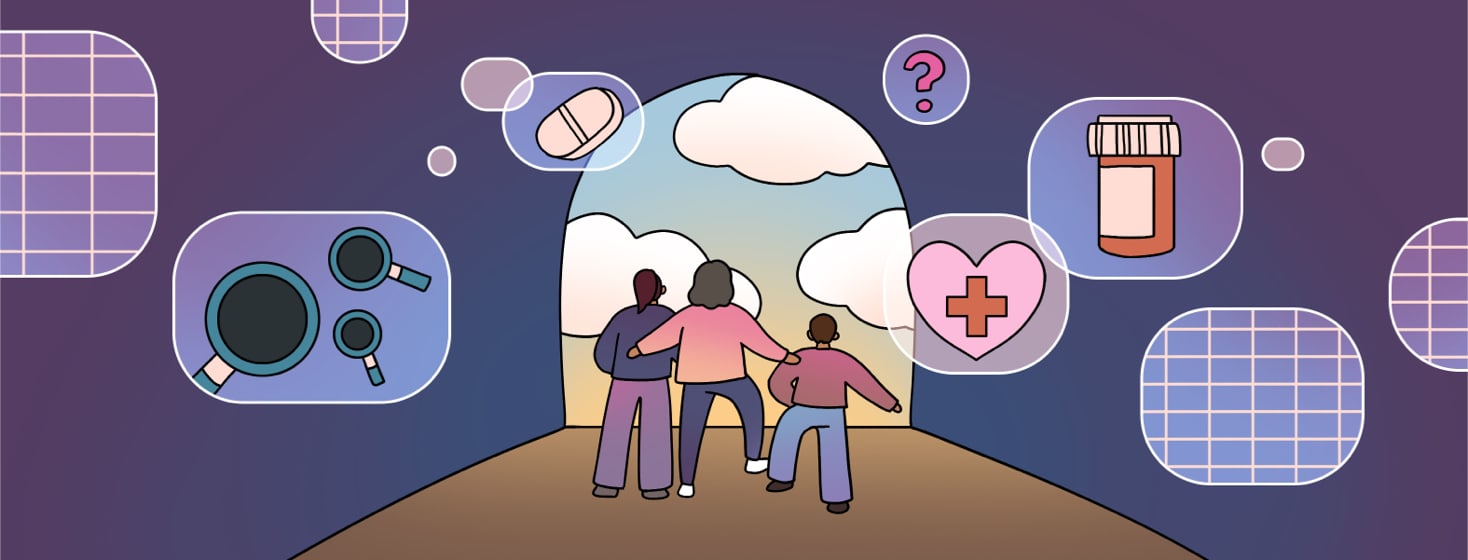How Clinical Trials Are Transforming the Future for Rare Disease Warriors
Prior to becoming a rare disease caregiver, I must admit that I overlooked and even doubted the significance of clinical trials. Historical stories, such as the notorious Tuskegee experiment, had instilled skepticism in my mind.1
However, my perspective underwent a profound shift when my daughter was diagnosed with a rare disease. I realized the immense importance of actively participating in clinical trials.
Today, I have come to understand how these clinical trials are transforming the future for individuals with rare diseases, paving the way for advancements that can benefit countless lives for years to come.
This or That
Have you ever participated in a clinical trial?
Overcoming skepticism: acknowledging the importance of clinical trials
As a caregiver, my initial skepticism surrounding clinical trials stemmed from apprehension rooted in historical, ethical breaches. However, I witnessed the rigorous safety regulations and ethical guidelines that now govern modern clinical trials. Being fully informed about these trials' purpose, design, and potential benefits helped me overcome my reservations and appreciate their vital role in advancing medical knowledge and treatment options for rare diseases.
Although the medical community isn't perfect, there have been significant strides in the process, such as implementing informed consent procedures, strict inclusion and exclusion criteria, and thorough monitoring and reporting requirements.
Additionally, the involvement of patient advocacy groups and the inclusion of patient perspectives in trial design and implementation have allowed for a more comprehensive and patient-centered approach. These measures ensure that the potential benefits of clinical trials are maximized while minimizing potential harms and risks, instilling much-needed trust and confidence in the clinical trial process.
The power of active participation: a personal journey
Having a daughter with a rare disease deepened my understanding of the immense value of participating in clinical trials. By actively engaging in these trials, we became part of a larger community dedicated to combating rare diseases.
Witnessing the dedication and expertise of the medical professionals involved, I realized that each participant contributes to the collective effort to find better treatments and cures. Clinical trials became a beacon of hope, not only for our own family but for others who share the same journey.
Transforming the future: impact on rare disease patients
Clinical trials are a catalyst for transforming the future of rare disease patients. By participating in these trials, patients like my daughter become pioneers, blazing a trail toward improved treatments and potential cures.
The data and knowledge gained from their involvement fuel the development of innovative therapies and interventions, ensuring that future generations have access to more effective options. Each trial, no matter the outcome, adds valuable pieces to the puzzle of understanding rare diseases and helps shape the future of medical care for those affected.
Eventually, the research findings may help communities worldwide by not only advancing scientific knowledge and treatment options for rare diseases but also by paving the way for novel approaches to managing more common conditions. The ripple effects of breakthroughs in rare disease research can lead to the development of innovative treatments that transcend disease boundaries, benefiting a broader range of patients and contributing to the overall improvement of global healthcare practices.
The collaborative effort and perseverance exhibited by participants in clinical trials, like my daughter, have the potential to inspire transformative changes that reach far beyond the realms of rare diseases, leaving a lasting impact on the future of medical care for generations to come.
Start a Forum
Spreading awareness and encouraging participation
As a caregiver, I believe it is crucial to spread awareness about the importance of clinical trials within the rare disease community. By sharing personal experiences and highlighting the impact of participation, we can break down the skepticism that may exist and encourage more families to consider joining these trials. Through collective efforts, we can create a network of support and education, empowering individuals and families to make informed decisions and play an active role in shaping their own healthcare journeys.
Here are 7 ways that participating in a clinical trial makes a difference for the rare disease community:
1. Advancing scientific knowledge
Participation in clinical trials contributes valuable data and insights, furthering the understanding of rare diseases and their treatment.
2. Driving innovation
By joining clinical trials, individuals provide the foundation for the development of groundbreaking therapies and interventions, sparking innovation in rare disease research.
3. Expanding treatment options
Through participation, patients and their families contribute to expanding available treatment options, potentially opening doors to more effective and targeted therapies.
4. Shaping regulatory approvals
Clinical trial data play a pivotal role in the regulatory approval process, influencing the availability of new treatments for rare diseases.
5. Creating support networks
Participation in clinical trials fosters connections and support networks within the rare disease community, offering a sense of unity and shared purpose.
6. Empowering future generations
Participation in clinical trials has an impact beyond the present, paving the way for improved care and outcomes for individuals affected by rare diseases in the future.
7. Inspiring hope and progress
By actively engaging in clinical trials, individuals and families become beacons of hope, inspiring others and catalyzing progress in the fight against rare diseases.
Looking foward to brighter days
My journey as a rare disease caregiver has taught me to value the significance of clinical trials in ways I never imagined. Overcoming skepticism and engaging in these trials has opened doors to countless possibilities and brought hope to our lives and those of others facing similar challenges.
The transformative power of clinical trials cannot be underestimated, as they pave the path to improved treatments and contribute to the broader understanding of rare diseases. By actively participating in these trials, we become agents of change, reshaping the future for individuals with rare diseases and offering optimism and progress where it is most needed. If you want to learn more about clinical trials, please visit clinicaltrials.gov.

Join the conversation